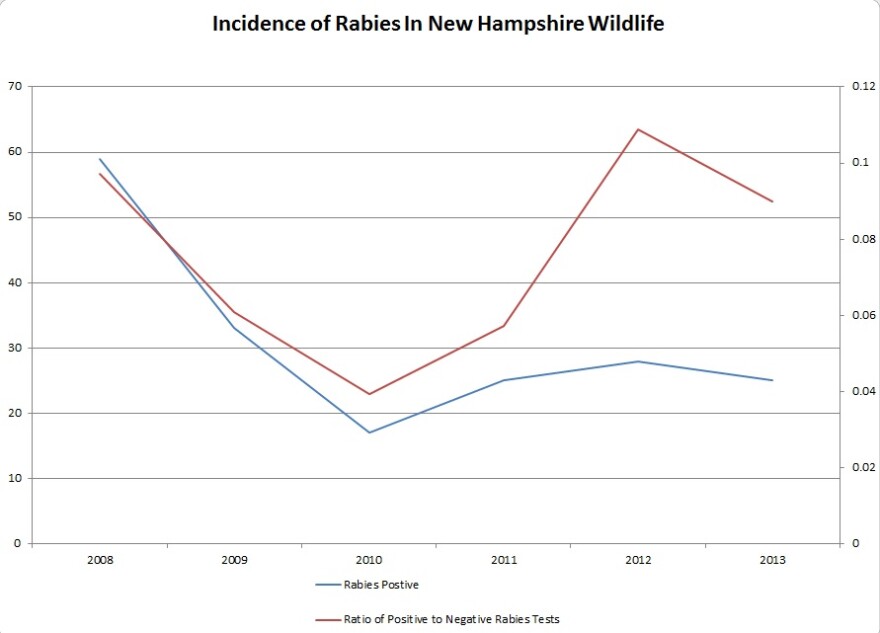The United States Department of Agriculture is distributing vanilla flavored rabies vaccine packets from airplanes over New Hampshire. The packets will show up in Coos and Grafton counties as part of 5-state pilot study of a new rabies vaccine.
The vaccines are thrown from 500 feet from a small aircraft over rural areas and distributed by hand in towns. They’re vanilla flavored, which trials have shown to be a favorite flavor for critters.
“Vanilla seems to be working pretty effectively,” says project’s field coordinator Jordana Kirby, “but the other vaccine that we are using is a fishmeal based attractant and that one also seems to be working pretty well.” No word on how bacon-flavored performs.
The goal of the program is first to keep rabies from spreading north into Canada, by creating a swath of immunized animals along the northern extreme of the rabies virus’ range. If that goal is a success, eventually the USDA hopes to expand the area of immunized wildlife farther south.
This is the second year of the study of a vaccine – ONRAB – that is already widely used in Canada. The USDA has been distributing another vaccine using the same method since 1997.
Kirby says the vaccine baits are safe for pets, but if residents come across them and are worried that they will be eaten by dogs or toddlers they can move them to areas more likely to contain raccoons and skunks.
The New Hampshire Department of Health and Human Services has confirmed 25 cases of rabies so-far in 2013, mostly in raccoons, skunks and foxes.









